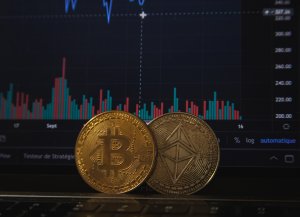- UK trusts, tax and estate planning
- FinTech

Longer Reads
How are your cryptoassets taxed?
December 2019’s guidance note set out HMRC’s view on the appropriate tax treatment of cryptoassets for businesses and individuals.
6 minute read
Published 24 January 2020
Key information
- Specialisms
- Private Wealth
- Business
Cryptocurrency has been firmly brought under Benjamin Franklin’s two certainties of life as HMRC published a revised guidance on cryptoassets on 20 December 2019. It came in the form of two documents ‘Cryptoassets: tax for individuals’; and ‘Cryptoassets: tax for business’.
The guidance sets out HMRC’s view of the appropriate tax treatment of cryptoassets based on current law. HMRC’s guidance for individuals who hold cryptoassets, explains what taxes they may need to pay, and what records they need to keep. As well as further information for businesses and companies about the tax treatment of cryptoasset transactions.
The guidance notes and reflects the position of the cryptoasset taskforce who published a report on the UK’s policy and regulatory approach to this area in October 2018. HMRC have vowed to take an evolving approach to the tax treatment of cryptocurrencies and will look at individual cases to see what has actually taken place.
The guidance provides a definition of a cryptoasset, including a distinction between exchange tokens, utility tokens and security tokens and guidance on the deemed location of tokens. This is useful to ascertain the tax status of cryptoassets and it further legitimises cryptoassets and their use in the UK.
Exchange tokens are defined as tokens which are intended to be used as a method of payment and encompasses ‘cryptocurrencies’ like bitcoin. HMRC note that they utilise distributed ledger technology and typically there is no person, group or asset underpinning these. Instead, the value exists based on its use as a means of exchange or investment. Unlike utility or security tokens, they do not provide any rights or access to goods or services.
HMRC defines utility tokens as providing the holder with access to particular goods or services on a platform using distributed ledger technology.
It defines security tokens as providing the holder with particular interests in a business, for example in the nature of debt due by the business or a share of profits in the business.
Individual taxation
- Individuals holding cryptoassets as a personal investment will be liable to pay CGT on disposal;
- Individuals who receive cryptoassets from employers as a form of non-cash payment or from mining, transaction confirmation or airdrops will be liable to pay Income Tax and NI contributions on their receipts; and
- Individuals running a business which is carrying on a financial trade in cryptoassets will have taxable trading profits and HMRC have said that Income Tax would take priority over CGT.
HMRC does not consider the buying and selling of cryptoassets to be the same as gambling.
HMRC note that in the vast majority of cases, individuals hold cryptoassets as a personal investment.
Location
The guidance provides commentary on where cryptoassets are situated geographically as a matter of law. Interestingly this was something touched on by the UK Taskforce Legal Statement report in November 2019, who were inconclusive in their discussion of where cryptoassets would be considered to be held. The UK Taskforce report said that they were reluctant to allocate a location to an asset which is designed to have none because it is decentralised.
HMRC have taken a different approach and have focused on the location of the holder. Which, on reflection, is not a contradictory stand point, as it fits the differing purpose of the approach i.e. the legal location of property and the location of the holder (which is usually the defining factor in UK taxation law).
The situs of exchange tokens is important in a tax context, as the question of whether an asset is situated within or outside the UK has a number of consequences. Whether the asset is a UK-situs asset will affect whether (1) capital gains is payable (2) it falls within the scope of Inheritance Tax.
HMRC have restricted their definition for this purpose to “exchange tokens” which are intended to be used as a method of payment and encompass ‘cryptocurrencies’ like bitcoin.
It is HMRC’s view that the current statutory rules applying to CGT in determining when particular types of assets will be in the UK (sections 275 and 275A of the Taxation of Chargeable Gains Act 1992) are unlikely to apply to exchange tokens and it is their view that:
- exchange tokens have an economic value as they can be ‘turned to account’ – for example, exchanging them for goods, services, fiat currency or other tokens;
- exchange tokens are a new type of intangible asset (different to other types of intangible assets, such as shares or debentures); and
- the only identifiable party to consider is the beneficial owner of the exchange token.
For Inheritance Tax, HMRC consider that the residency of the beneficial owner of the exchange tokens will determine their location. If it is co-owned then each individual’s beneficial interest will be where that beneficial owner is resident.
Income tax
Simply, if the holder of a cryptoasset is conducting a trade then Income Tax will be applied to their trading profits. HMRC said that only in exceptional circumstances will they consider that an individual buying and selling cryptoassets would be an activity that amounts to a financial trade in itself. For this to occur it would require frequency, organisation and sophistication.
Mining (when cryptoassets are awarded for verifying additions to the blockchain digital ledger) or fees rewarded for mining, will usually amount to taxable income with any appropriate expenses reducing the amount chargeable. For this activity to amount to a taxable trade it would depend on the degree of activity, organisation, risk and commerciality.
Income tax will not be payable on cryptoassets received without doing anything in return and/or not as part of a trade or business involving cryptoassets (e.g. Airdrops). CGT would still be payable on disposal of the assets.
Income tax will be judged by the pound sterling value of the cryptoasset at the time of receipt. Income losses can be offset against profits to reduce liability.
Capital Gains Tax
HMRC have said that they expect that the buying and selling of cryptoassets by an individual will normally amount to investment activity (rather than a trade of dealing in cryptoassets). In such cases, if an individual invests in cryptoassets they will typically have to pay Capital Gains Tax on any gains they realise with a disposal.
HMRC have broadly defined a disposal as: selling cryptoassets for money; exchanging cryptoassets for a different type of cryptoassets; using cryptoassets to pay for goods or services; or giving away cryptoassets to another person.
The gain is calculated less: the consideration (in pounds sterling) originally paid for the asset; transaction fees paid before the transaction is added to a blockchain; costs of advising, legal fees and valuations when selling the asset.
HMRC have also set out specific rules for Pooling and Blockchain forks. A Blockchain fork is when there is a change in the Blockchain protocol and different parties diverge from common rules.
Businesses Taxation
If a company is:
- buying and selling exchange tokens;
- exchanging tokens for other assets (including other types of cryptoassets);
- ‘mining’; or
- providing goods or services in return for exchange tokens,
they are liable to pay tax on them. The tax may be one or more of Capital Gains Tax, Corporation Tax, Income Tax, National Insurance contributions, Stamp Taxes, VAT.
Trading in exchange tokens
Whether the buying and selling of exchange tokens amounts to a trade depends on a range of factors including: degree and frequency of activity; level of organisation; and intention (including risk and commerciality).
If a person or business’s activities amount to a trade, the receipts and expenses will form part of the calculation of the trading profit.
If a company carrying on a trade accepts exchange tokens as payment from customers, or uses them to make payments to suppliers, the tokens given or received will need to be accounted for within the taxable trading profits.
Whether mining will be considered a taxable trade will involve the consideration of degree and frequency of activity; level of organisation; risk; and commerciality.
Corporation Tax
When calculating their Corporation Tax, companies must take into account all of the exchange token transactions they have carried out (as they would with any other type of asset). HMRC have reiterated that it does not consider cryptoassets to be money or currency. This means that rules relating to money or currency do not apply.
Consequently, exchange tokens do not create a loan relationship and therefore cannot be taxed as such.
VAT
VAT is due on any goods or services sold in exchange for cryptoasset exchange tokens. The value of the supply of goods or services on which VAT is due will be the pound sterling value of the exchange tokens at the point the transaction takes place.
In 2014 after complaints from UK entrepreneurs that charging VAT on cryptocurrencies would make them less competitive in a global market, HMRC reversed its decision and exempted cryptocurrencies from VAT.
EU case law has decided that the EU VAT Directive exemption for currency exchange does extend to Bitcoin. HMRC have echoed this approach in regards cryptocurrencies themselves (and not goods/services received in exchange for cryptocurrencies).
US Approach
It is useful to note that HMRC have taken a similar approach to the IRS in the US. The IRS consider cryptocurrency to be property and not currency, and tax is usually payable depending on capital gain or loss.
The IRS also recognises income gained from mining.
The IRS have also taken steps to determine how to value cryptocurrency at the time of a transaction, and calculate the tax. They use a ‘reasonable manner’ valuation test as defined in the IRS Notice 2014-21.
The IRS’ approach in its literature, is to take a firm hand and they threaten criminal prosecution of those who attempt to avoid tax on cryptocurrencies. HMRC’s approach appears to be to focus on guiding users.
There is a bill making its way through US congress attempting to exempt small crypto transactions from tax returns. This would be useful in the context of individual users and forms part of the Virtual Currency Tax Fairness Act 2020.
Takeaways
Individuals and businesses should expect to be taxed on cryptocurrencies as if they were buying and selling other assets. Similarly, cryptocurrency received as income, or income created by cryptocurrency trades, will be treated as such.
Tax will be calculated based on the value of cryptocurrency in pounds sterling, which is likely to have an impact on selling and buying decisions. Even if crypto is being transferred into different crypto or fiat currency, for tax purposes it will be valued in pounds sterling.
As we have seen with other sectors of the UK’s governance, it is good to see that HMRC are willing to take a dynamic approach to cryptocurrency when necessary, rather than trying to drive a round peg into a square hole.
Although some will object to legal intervention with regards to cryptocurrencies and in particular to their taxation, the recognition and legitimacy that this and other guidance provides, may go some way to stabilising cryptocurrency value. This in turn will hopefully support the development of blockchain as a more widely used technology.
Related content
Longer Reads
How are your cryptoassets taxed?
December 2019’s guidance note set out HMRC’s view on the appropriate tax treatment of cryptoassets for businesses and individuals.
Published 24 January 2020
Associated sectors / services
Cryptocurrency has been firmly brought under Benjamin Franklin’s two certainties of life as HMRC published a revised guidance on cryptoassets on 20 December 2019. It came in the form of two documents ‘Cryptoassets: tax for individuals’; and ‘Cryptoassets: tax for business’.
The guidance sets out HMRC’s view of the appropriate tax treatment of cryptoassets based on current law. HMRC’s guidance for individuals who hold cryptoassets, explains what taxes they may need to pay, and what records they need to keep. As well as further information for businesses and companies about the tax treatment of cryptoasset transactions.
The guidance notes and reflects the position of the cryptoasset taskforce who published a report on the UK’s policy and regulatory approach to this area in October 2018. HMRC have vowed to take an evolving approach to the tax treatment of cryptocurrencies and will look at individual cases to see what has actually taken place.
The guidance provides a definition of a cryptoasset, including a distinction between exchange tokens, utility tokens and security tokens and guidance on the deemed location of tokens. This is useful to ascertain the tax status of cryptoassets and it further legitimises cryptoassets and their use in the UK.
Exchange tokens are defined as tokens which are intended to be used as a method of payment and encompasses ‘cryptocurrencies’ like bitcoin. HMRC note that they utilise distributed ledger technology and typically there is no person, group or asset underpinning these. Instead, the value exists based on its use as a means of exchange or investment. Unlike utility or security tokens, they do not provide any rights or access to goods or services.
HMRC defines utility tokens as providing the holder with access to particular goods or services on a platform using distributed ledger technology.
It defines security tokens as providing the holder with particular interests in a business, for example in the nature of debt due by the business or a share of profits in the business.
Individual taxation
- Individuals holding cryptoassets as a personal investment will be liable to pay CGT on disposal;
- Individuals who receive cryptoassets from employers as a form of non-cash payment or from mining, transaction confirmation or airdrops will be liable to pay Income Tax and NI contributions on their receipts; and
- Individuals running a business which is carrying on a financial trade in cryptoassets will have taxable trading profits and HMRC have said that Income Tax would take priority over CGT.
HMRC does not consider the buying and selling of cryptoassets to be the same as gambling.
HMRC note that in the vast majority of cases, individuals hold cryptoassets as a personal investment.
Location
The guidance provides commentary on where cryptoassets are situated geographically as a matter of law. Interestingly this was something touched on by the UK Taskforce Legal Statement report in November 2019, who were inconclusive in their discussion of where cryptoassets would be considered to be held. The UK Taskforce report said that they were reluctant to allocate a location to an asset which is designed to have none because it is decentralised.
HMRC have taken a different approach and have focused on the location of the holder. Which, on reflection, is not a contradictory stand point, as it fits the differing purpose of the approach i.e. the legal location of property and the location of the holder (which is usually the defining factor in UK taxation law).
The situs of exchange tokens is important in a tax context, as the question of whether an asset is situated within or outside the UK has a number of consequences. Whether the asset is a UK-situs asset will affect whether (1) capital gains is payable (2) it falls within the scope of Inheritance Tax.
HMRC have restricted their definition for this purpose to “exchange tokens” which are intended to be used as a method of payment and encompass ‘cryptocurrencies’ like bitcoin.
It is HMRC’s view that the current statutory rules applying to CGT in determining when particular types of assets will be in the UK (sections 275 and 275A of the Taxation of Chargeable Gains Act 1992) are unlikely to apply to exchange tokens and it is their view that:
- exchange tokens have an economic value as they can be ‘turned to account’ – for example, exchanging them for goods, services, fiat currency or other tokens;
- exchange tokens are a new type of intangible asset (different to other types of intangible assets, such as shares or debentures); and
- the only identifiable party to consider is the beneficial owner of the exchange token.
For Inheritance Tax, HMRC consider that the residency of the beneficial owner of the exchange tokens will determine their location. If it is co-owned then each individual’s beneficial interest will be where that beneficial owner is resident.
Income tax
Simply, if the holder of a cryptoasset is conducting a trade then Income Tax will be applied to their trading profits. HMRC said that only in exceptional circumstances will they consider that an individual buying and selling cryptoassets would be an activity that amounts to a financial trade in itself. For this to occur it would require frequency, organisation and sophistication.
Mining (when cryptoassets are awarded for verifying additions to the blockchain digital ledger) or fees rewarded for mining, will usually amount to taxable income with any appropriate expenses reducing the amount chargeable. For this activity to amount to a taxable trade it would depend on the degree of activity, organisation, risk and commerciality.
Income tax will not be payable on cryptoassets received without doing anything in return and/or not as part of a trade or business involving cryptoassets (e.g. Airdrops). CGT would still be payable on disposal of the assets.
Income tax will be judged by the pound sterling value of the cryptoasset at the time of receipt. Income losses can be offset against profits to reduce liability.
Capital Gains Tax
HMRC have said that they expect that the buying and selling of cryptoassets by an individual will normally amount to investment activity (rather than a trade of dealing in cryptoassets). In such cases, if an individual invests in cryptoassets they will typically have to pay Capital Gains Tax on any gains they realise with a disposal.
HMRC have broadly defined a disposal as: selling cryptoassets for money; exchanging cryptoassets for a different type of cryptoassets; using cryptoassets to pay for goods or services; or giving away cryptoassets to another person.
The gain is calculated less: the consideration (in pounds sterling) originally paid for the asset; transaction fees paid before the transaction is added to a blockchain; costs of advising, legal fees and valuations when selling the asset.
HMRC have also set out specific rules for Pooling and Blockchain forks. A Blockchain fork is when there is a change in the Blockchain protocol and different parties diverge from common rules.
Businesses Taxation
If a company is:
- buying and selling exchange tokens;
- exchanging tokens for other assets (including other types of cryptoassets);
- ‘mining’; or
- providing goods or services in return for exchange tokens,
they are liable to pay tax on them. The tax may be one or more of Capital Gains Tax, Corporation Tax, Income Tax, National Insurance contributions, Stamp Taxes, VAT.
Trading in exchange tokens
Whether the buying and selling of exchange tokens amounts to a trade depends on a range of factors including: degree and frequency of activity; level of organisation; and intention (including risk and commerciality).
If a person or business’s activities amount to a trade, the receipts and expenses will form part of the calculation of the trading profit.
If a company carrying on a trade accepts exchange tokens as payment from customers, or uses them to make payments to suppliers, the tokens given or received will need to be accounted for within the taxable trading profits.
Whether mining will be considered a taxable trade will involve the consideration of degree and frequency of activity; level of organisation; risk; and commerciality.
Corporation Tax
When calculating their Corporation Tax, companies must take into account all of the exchange token transactions they have carried out (as they would with any other type of asset). HMRC have reiterated that it does not consider cryptoassets to be money or currency. This means that rules relating to money or currency do not apply.
Consequently, exchange tokens do not create a loan relationship and therefore cannot be taxed as such.
VAT
VAT is due on any goods or services sold in exchange for cryptoasset exchange tokens. The value of the supply of goods or services on which VAT is due will be the pound sterling value of the exchange tokens at the point the transaction takes place.
In 2014 after complaints from UK entrepreneurs that charging VAT on cryptocurrencies would make them less competitive in a global market, HMRC reversed its decision and exempted cryptocurrencies from VAT.
EU case law has decided that the EU VAT Directive exemption for currency exchange does extend to Bitcoin. HMRC have echoed this approach in regards cryptocurrencies themselves (and not goods/services received in exchange for cryptocurrencies).
US Approach
It is useful to note that HMRC have taken a similar approach to the IRS in the US. The IRS consider cryptocurrency to be property and not currency, and tax is usually payable depending on capital gain or loss.
The IRS also recognises income gained from mining.
The IRS have also taken steps to determine how to value cryptocurrency at the time of a transaction, and calculate the tax. They use a ‘reasonable manner’ valuation test as defined in the IRS Notice 2014-21.
The IRS’ approach in its literature, is to take a firm hand and they threaten criminal prosecution of those who attempt to avoid tax on cryptocurrencies. HMRC’s approach appears to be to focus on guiding users.
There is a bill making its way through US congress attempting to exempt small crypto transactions from tax returns. This would be useful in the context of individual users and forms part of the Virtual Currency Tax Fairness Act 2020.
Takeaways
Individuals and businesses should expect to be taxed on cryptocurrencies as if they were buying and selling other assets. Similarly, cryptocurrency received as income, or income created by cryptocurrency trades, will be treated as such.
Tax will be calculated based on the value of cryptocurrency in pounds sterling, which is likely to have an impact on selling and buying decisions. Even if crypto is being transferred into different crypto or fiat currency, for tax purposes it will be valued in pounds sterling.
As we have seen with other sectors of the UK’s governance, it is good to see that HMRC are willing to take a dynamic approach to cryptocurrency when necessary, rather than trying to drive a round peg into a square hole.
Although some will object to legal intervention with regards to cryptocurrencies and in particular to their taxation, the recognition and legitimacy that this and other guidance provides, may go some way to stabilising cryptocurrency value. This in turn will hopefully support the development of blockchain as a more widely used technology.
Associated sectors / services
- UK trusts, tax and estate planning
- FinTech
Need some more information? Make an enquiry below.
Enjoy reading our articles? why not subscribe to notifications so you’ll never miss one?
Subscribe to our articlesMessage us on WhatsApp (calling not available)
Please note that Collyer Bristow provides this service during office hours for general information and enquiries only and that no legal or other professional advice will be provided over the WhatsApp platform. Please also note that if you choose to use this platform your personal data is likely to be processed outside the UK and EEA, including in the US. Appropriate legal or other professional opinion should be taken before taking or omitting to take any action in respect of any specific problem. Collyer Bristow LLP accepts no liability for any loss or damage which may arise from reliance on information provided. All information will be deleted immediately upon completion of a conversation.
Close










































































